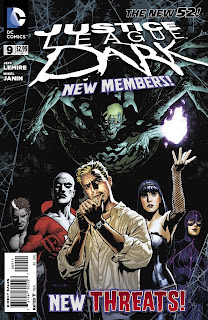[Blog comments, if at all, in square brackets. This is part of something I worked on regarding Quine and philosophical anthropology. Still a work in progress, in my view now.]
...I cite a later article of Quine (1992, 6) ["Structure and Nature"From the Journal of Philosophy 89 (1)]:
Natural science tells us that our ongoing cognitive access
to the world around us is limited to meager channels. There is the triggering
of our sensory receptors by the impact of molecules and light rays. Also there
is the difference in muscular effort sensed in walking up or down a hill. What
more? Even the notion of a cat, let alone a class or a number, is
a human artifact, rooted in an innate predisposition and cultural tradition.
The very notion of an object at all, concrete or abstract, is a human
contribution, a feature of our inherited apparatus for organizing the amorphous
welter of neural input?
From the
above passage one does not just note the consistency of Quine’s idioms, but his
consistency of views as well. But what is Quine driving at? Does it lead to the
type of reductionism mentioned earlier? What Quine is driving at has
implications to views on knowledge and language, not necessarily a reduction of
persons in the form of “persons are nothing
but physical objects.” There is nothing more to a person but a human
being’s physical constituents. Quine is far from arguing for this sort of
reduction.
[Photo credit to: http://www.wvquine.org/wvq-obit.html. A page maintained by Douglas Boynton Quine]
However, going by the above passages so far cited does not
close off the possibility that Quine was a behaviorist. Affirming that persons
are physical objects would seem to entail this. Glock (2001, 9) aptly
classifies Quine’s behaviorism as “methodological.” In Glock’s words,”mental
phenomena should not feature in a scientific explanation of behavior.” In at least both Word and object and his “Replies” (1969) [Reply to Chomsky], Quine
repeatedly eschews any outright denial of the existence of mental phenomena.
Following Glock’s methodological characterization of Quine’s behaviorism,
Quinean naturalism does not argue that mental phenomena do not exist. Not
including mental phenomena in a naturalistic study of behavior does not entail
a denial of mental phenomena. This is
important to note in this paper for this is at least one difference between
Husserl’s conception of naturalism and Quinean naturalism. Such would have a bearing on the purported
inappropriateness of using naturalism on the philosophical discussion of a
person.
While Glock’s classifies Quine’s behaviorism as
methodological, the former backtracks when he compares Quine to another
influential philosopher, Wittgenstein. Glock argues that a significant
difference between Wittgenstein and Quine are there versions of behaviorism.
Glock (2001, 13) writes that
Wittgenstein condones a ‘hermeneutic’ distinction between
understanding and explanation which implies that human action cannot be made
intelligible solely through the causal explanations of natural science.
Glock implies in the above passage that Quine subscribes to
the notion that human action can be
made intelligible solely through the
causal explanations of science. This implication of Glock is further emphasized
by mentioning “hermeneutic.” This is not
a paper on the differences between analytic and “continental” traditions (that
includes hermeneutics), or the intersections between them, but Glock seems to
capitalize on this. Some of the usual philosophical discussions of the person
are readily found in the “continental’ tradition especially if one identifies
the series of philosophies that came after Husserl.
Glock goes on to point that in talking of understanding (a
human being) one cannot help but use an intentional vocabulary and that this is
precisely what Quine denies. Glock’s differentiating the behaviorism of Quine
versus Wittgenstein recalls the previous discussion on reductionism. A person’s
actions are “intelligible solely
through the causal explanations of science” for a person is nothing but a physical object.
Even without Glock, it seems simple
enough that Wittgenstein and Quine are on divergent paths when it comes to the
relationship of philosophy and science.
As has been discussed, Quine’s idiom buttresses the consistency of the
naturalism he advocates. But even if this were the case, this does not mean
that for Quine the causal explanations of science are sufficient to understand human action. Glock (2001,
13) continues his discussion of Quine’s divergence from Wittgenstein (and
consequently to the “continental” tradition) by referring to the former’s
“stimulus-response” behaviorism. It seems to be an inconsistency on Glock’s
(2001, 11) part for earlier he refers to Quine’s anti-reductionism, “no
individual statement can be associated with a specific set of experiences…” One
major upshot of Quine’s (1961) “Two dogmas” is anti-reductionism that is
incompatible to stimulus-response behaviorism. For meaningful statements do not
refer to immediate experience on by one, and Quine’s rejection of the
analytic-synthetic distinction relegates one to the contextual or holistic.
They are contextual in that even purportedly analytic statements (“All
bachelors are unmarried men”) are dependent on empirical factors and usage
(Quine 1961, 24) and also the rejection of reductionism. Therefore there is a
need to interpret, to understand, if
one follows Glock’s terminology. Quine’s naturalism does not rule out this
hermeneutic aspect. Quine (1992, 6) himself, in a passage cited, earlier does
write about “cultural traditions” and “human contribution” in order to make
sense of neural inputs (like our encounter of cats and numbers).
Quine’s (1985, 6) discussion of “mentalistic idioms” (like
belief) and their translatability to neurology can illuminate further why the
previous charges of reductionism and behaviorism will not necessarily go
against his naturalism:
There is no presumption that the mentalistic idioms
[intentional vocabulary for Glock] would in general be translatable into the
anatomical and biochemical terminology of neurology, even if all details of the
neurological mechanism were understood. Thus take belief. Assessed on its objective manifestations,
belief is a very mixed bag. Lip service
is our most convenient clue to belief, but is neither a necessary nor a
sufficient condition.
Quine, in the paragraph before this, talks of his
“identificaiton [sic] of mental states with bodily ones, neural ones; a
construing of the mental as neural.”
Ontologically, as has been shown, Quine is physicalist but he does
distinguish between matters of scientific knowledge (anatomy, biochemistry and
neurology) and matters of mentalistic idioms (belief). The latter is a different consideration even
if “all the details of neurological
mechanism are understood.” That this is Quine’s (1985, 7) point is buttressed
by his endorsement of Davidson’s (1980) anomalous monism versus a metaphysical
dualism of mind and body. The position is called anomalous monism in that there
is only the body that may be understood through the many sciences. But when one
talks of the mind there need not be any necessary connection with the sciences
in making sense of this. For instance, the stomach’s being empty and all that
is entailed physiologically by this state need not be connected with one’s
elation at having stuck with a strict dietary regimen. Davidson is doubtful one can find strict laws
that connect what happens in the “physical” with the “psychological.”
Quine takes the other horn of Davidson’s anomalous monism in
emphasizing and focusing on that which is covered by scientific laws. But this focus
also serves to highlight, albeit in a different way, that beliefs and other
propositional attitudes have to be understood on a different model from natural
science. Notice that beliefs and propositional attitudes would apply to
persons. Consequently, Quine’s would have no qualms in other areas of inquiry
not having a causal explanation in the matter of persons. In Quine’s (1985, 6-7) words and continuing
his discussion of belief:
Acceptance of wagers is a firmer sign, and the accepted odds
even afford a measure of the strength of a belief; but this test is available
only if there is a prospect of subsequently finding the answer, acceptably to
both parties, and settling the bet. Other behavior, such as searching or fleeing
or standing expectantly, can serve tentatively as manifestations…but these
manifestations vary drastically
[emphasis added]…Other grounds…may be sought unsystematically [emphasis added] by probing the subject’s past for
probable causes of his present state of mind…
Again, unlike what Glock claims, the above passage
buttresses the notion that here Quine’s view would involve what Glock calls
understanding. That is, Quine is not ascribing only a causal model to an
intentional vocabulary. Glock (2001, 14)
then cites a passage of Wittgenstein to further contrast it to Quine’s view. Here is some of the specified passage of
Wittgenstein (1958, 126):
But can’t I imagine that the people around me are automata,
lack consciousness, even though they behave in the same way as usual… Say to
yourself for, for example: “The children over there are mere automata; all
their liveliness is mere automatism.” And you will find these words becoming
quite meaningless; or you will produce in yourself some kind of uncanny
feeling…Seeing a living human being as an automaton is analogous to seeing one
figure as a limiting case or variant of another; the cross pieces of a window
as a swastika, for example.
However, if one takes seriously Quine’s acceptance of
anomalous monism then the above will be acceptable to Quine. That is, to borrow
Glock’s (2001, 14) terms, a “special act of aspect-seeing” to regard a human
being as an automata, limiting oneself
to the human being as physiological mechanism as what
scientists do. If it is true that Quine is an anomalous monist then he
recognizes difference in aspect. That is why the intentional vocabulary is not
presumed to be translatable to science in Quine’s view. This further buttresses
the idea that Quine is not a reductionist-behaviorist about a person. The next
passage of Wittgenstein (1958, 126) is perhaps closer to Quine’s point also:
It seems paradoxical to us that we should make such a
medley, mixing physical states and states of consciousness up together in a single report: “He suffered great
torments and tossed about restlessly.” It is quite unusual; so why do we find
it paradoxical? Because we want to say that the sentence deals with both
tangibles and intangibles at once.-But does it worry you if I say: “These three
struts give the building stability”? Are three and stability tangible?-Look at
the sentence as an instrument, and at its sense as its employment.
Quine’s focus, most would say “bias” is that the intentional
vocabulary would be “unsystematic” or “vary drastically” if one compares it to the methods of the natural sciences. But this
hardly means, contra Glock, that Quine cannot deal with intentional vocabulary
in a similar way that Wittgenstein did.
Quine has very significant qualms with the intentional vocabulary,
nevertheless produces an account that I believe can address human beings as
persons to be understood (“hermeneutically” following Glock’s expression).


 [Image culled from: http://www.amazon.com/Lyrical-Critical-Essays-Albert-Camus/dp/0394708520]
[Image culled from: http://www.amazon.com/Lyrical-Critical-Essays-Albert-Camus/dp/0394708520] [Image culled from: http://www.amazon.com/Quick-Studies-Best-Lingua-Franca/dp/0374528632/]
[Image culled from: http://www.amazon.com/Quick-Studies-Best-Lingua-Franca/dp/0374528632/]
 For September, I have been rereading some things apart from the comics that I have been following. This October, I have just finished reading Norman Malcolm's account of his friendship with Ludwig Wittgenstein. There are parts of the book that would be better appreciated by familiarity with the Tractatus, Philosophical Investigations and On Certainty.
For September, I have been rereading some things apart from the comics that I have been following. This October, I have just finished reading Norman Malcolm's account of his friendship with Ludwig Wittgenstein. There are parts of the book that would be better appreciated by familiarity with the Tractatus, Philosophical Investigations and On Certainty.




































